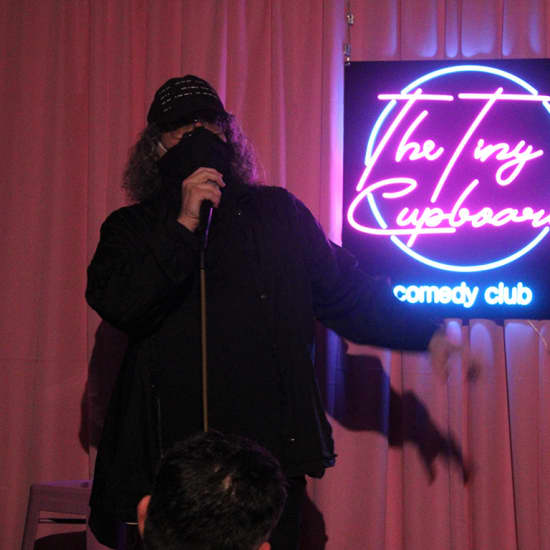Aoteng Insights
Your go-to source for the latest trends and insights.
Why Comedians Are Just Dressed-Up Therapists
Discover how comedians serve as disguised therapists, using humor to heal and connect. Unravel the laughter and find the therapy within!
Unpacking the Connection: How Comedians Serve as Modern-Day Therapists
In today's fast-paced world, humor plays a crucial role in mental health, and comedians have emerged as modern-day therapists. They possess a unique ability to address complex emotional issues through the lens of laughter, creating a safe space for audiences to confront their own vulnerabilities. By weaving personal stories and observational humor into their routines, comedians often tackle sensitive topics—such as anxiety, grief, and relationships—making them relatable and digestible for the masses. This blending of comedy and therapy invites viewers to not only laugh but to also reflect on their own experiences, fostering a sense of community and understanding.
Furthermore, the therapeutic effects of comedy can be seen in the way comedians connect with their audience. In live performances or even through their online content, they create an atmosphere of shared experience, where laughter serves as a form of release. As comedians shine a light on the absurdities of life, they enable us to process our emotions and challenge societal norms. This cathartic experience not only entertains but also provides valuable insights into the human condition, positioning comedians as unlikely but essential figures in the realm of mental wellness.

Laughter as Therapy: Exploring the Psychological Impact of Comedy
Laughter as therapy has gained recognition in the mental health community as an effective tool for improving psychological well-being. Research has shown that the act of laughing releases endorphins, which are the body's natural feel-good chemicals. This physiological response can lead to a reduction in stress and anxiety levels. Comedy, in various forms—whether it be stand-up, movies, or funny anecdotes—serves as a welcome distraction and allows individuals to experience joy, even amidst adversity. Not only does laughter uplift mood, but it also enhances social bonds, creating a sense of community that is essential for emotional health.
Furthermore, the impact of comedy on mental health extends to its ability to facilitate deeper conversations about serious topics. By using humor, therapists and individuals alike can address difficult emotions and experiences without overwhelming intensity. Many people find it easier to open up when humor is involved, which can lead to breakthroughs in therapeutic settings. In essence, **laughter acts as a social lubricant**, helping people connect with each other and themselves on a deeper level, making it a vital component in the journey toward emotional healing.
Are Comedians the Secret Healers We Didn't Know We Needed?
Are comedians the secret healers we didn't know we needed? In a world often overshadowed by stress, anxiety, and various emotional burdens, comedians emerge as unexpected saints. Laughter, as they say, is the best medicine, and comedians have a unique way of unlocking our laughter, helping us cope with the challenges of life. By addressing sensitive topics through humor, they not only entertain but also help us process difficult emotions. This transformative power of laughter can serve as a temporary refuge and a therapeutic experience, allowing individuals to confront and alleviate their pain.
Moreover, the social aspect of comedy creates a sense of community among audiences. When we share a laugh, we connect with others on a deeper level, fostering empathy and understanding. Comedians often reflect societal issues in their routines, sparking important conversations and creating awareness around mental health. As we laugh together, we experience a release of pent-up tension and a boost of endorphins, ultimately reminding us that we are not alone in our struggles. In this light, it becomes clear that comedians are indeed the secret healers we didn't know we needed, proving that sometimes, the best way to heal is simply to laugh together.